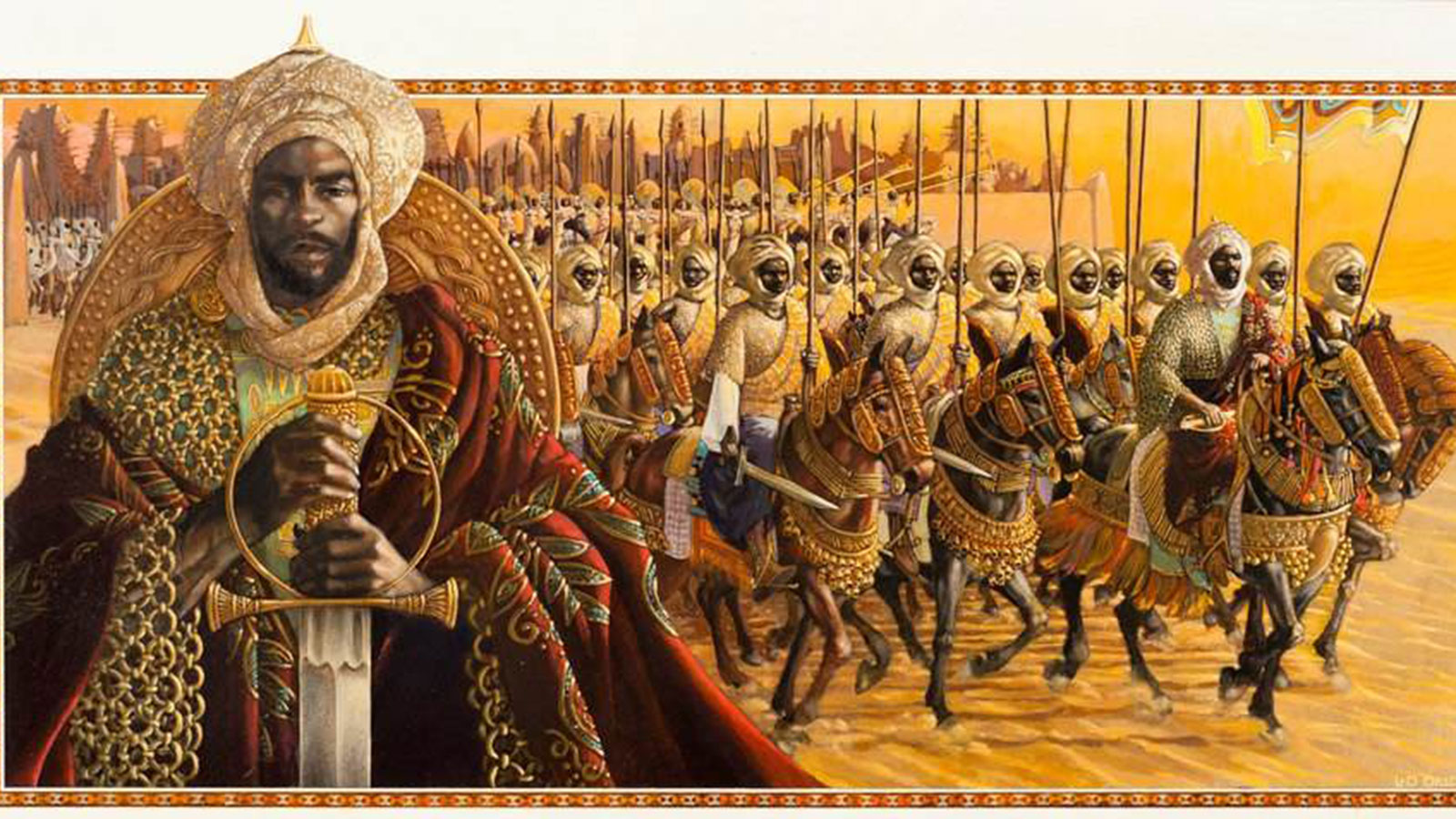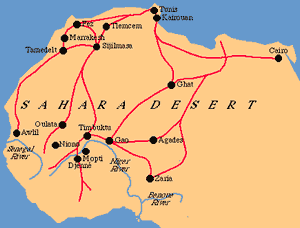Mansa Musa: The Man Who Crashed an Economy with Too Much Gold

Mansa Musa: The Man Who Crashed an Economy with Too Much Gold
Discover the story of Mansa Musa, ruler of the Mali Empire and the richest man in history. Learn how his 1324 pilgrimage to Mecca, loaded with gold, reshaped economies and put West Africa on the global map.
If Elon Musk and Jeff Bezos ever had a “Who’s Richer?” competition, they’d still be broke boys compared to Mansa Musa, the 14th-century ruler of the Mali Empire. This man wasn’t just rich, he was so rich that when he took a road trip to Mecca, he accidentally wrecked an entire economy. Yes, really.
Mali Empire: The Hidden Giant
Before we dive into the money flex, let’s set the scene. The Mali Empire (1235–1600s) was no small-time kingdom. At its peak, it controlled much of West Africa, which includes modern-day Mali, Senegal, Gambia, Niger, Guinea, and Burkina Faso. Why was Mali so stacked? Simple: gold and salt. These two resources were like the Bitcoin and oil of the medieval world. Whoever controlled them controlled wealth. And Musa controlled a LOT of it. By the time he became emperor in 1312, Musa inherited so much wealth that even Historians today struggle to put a number on it. Some say he’s still the richest human in history, richer than Musk, Bezos, and Rockefeller combined.
The 1324 Road Trip: Pilgrimage Goals
In 1324, Mansa Musa decided to go on Hajj (the Islamic pilgrimage to Mecca). But this wasn’t your usual pious journey. Musa rolled up with:
• 60,000 men, including guards, officials, and entertainers.
• 12,000 slaves (each carrying gold bars).
• 100 camels carrying up to 300 pounds of gold each.
This wasn’t a pilgrimage. It was a flex. Imagine someone pulling up to your neighbourhood with a convoy so shiny it blinds the sun. That was Musa’s squad.
The Gold Drop Heard Around the World
On his way to Mecca, Musa passed through Cairo, Egypt, and decided to spend freely. But here’s the problem: when you casually hand out so much gold that it loses value, you’ve just wrecked the local economy. That’s exactly what happened. Musa gave out gold like party favours, and inflation went crazy. Prices skyrocketed, and Cairo’s economy didn’t recover for years. Historians say it took more than a decade for gold prices to stabilise. This is the only time in recorded history where one man’s shopping spree single-handedly tanked a national economy.
Global Impact: Musa Puts Mali on the Map
Musa’s journey didn’t just flex wealth; it put Mali on the world stage. News of the rich West African empire spread across Europe and the Middle East.
• Cartographers started drawing Mali on maps, with Musa sitting on a golden throne.
• Scholars, architects, and traders flocked to Mali.
• Back home, Musa funded mosques, schools, and libraries, especially in Timbuktu, turning it into a hub of learning.
In short, Musa’s pilgrimage was the ultimate PR campaign. He made Mali a global brand.
Why Mansa Musa Still Matters
1. Wealth With Impact. Musa wasn’t just hoarding gold; he used his resources to build infrastructure, education, and trade that lasted centuries.
2. Breaking the Narrative. Too often, Africa’s history gets painted as one of poverty. Musa’s story flips that script. Africa was home to some of the richest, most sophisticated empires in history.
3. The Flex That Echoes. To this day, Mansa Musa’s wealth is legendary. He’s often cited as the richest person ever. And unlike modern billionaires, his legacy wasn’t just rockets and Teslas — it was libraries, cities, and cultural pride.
The Takeaway: Too Much Gold Is a Problem (Apparently)
Mansa Musa’s story isn’t just about wealth; it’s about how that wealth shaped history. He didn’t just flex; he left a legacy that turned Timbuktu into a byword for knowledge and culture. So next time you think you’re arguing about Elon’s wealth, remember Mansa Musa, the emperor who casually gave away so much gold that he broke economies. Talk about Africans flexing wealth.


